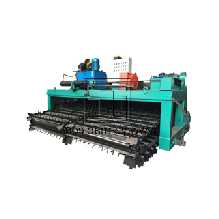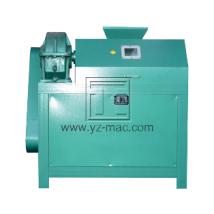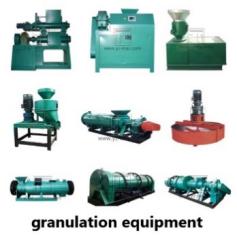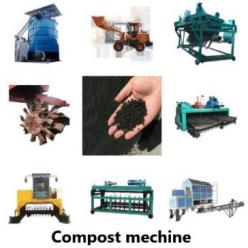Compost turner
A compost turner is a specialized machine designed to optimize the composting process by aerating and mixing organic waste materials. By turning and mixing the compost pile, a compost turner creates an oxygen-rich environment, promotes decomposition, and ensures the production of high-quality compost.
Types of Compost Turners:
Self-Propelled Turners:
Self-propelled compost turners are large, heavy-duty machines equipped with rotating drums or paddles. These turners are capable of maneuvering on their own, allowing operators to cover a large area and turn substantial compost piles efficiently. Self-propelled turners are commonly used in large-scale commercial composting operations.
Tow-Behind Turners:
Tow-behind compost turners are designed to be attached to a tractor or other towing vehicle. They feature rotating drums or paddles that agitate and mix the compost pile as the vehicle moves forward. Tow-behind turners are suitable for medium to large-scale composting operations and provide excellent maneuverability and efficiency.
Windrow Turners:
Windrow turners are tractor-mounted machines that are specifically designed for turning compost windrows, which are long, narrow piles of compost. These turners use rotating drums, paddles, or augers to lift and mix the compost materials, ensuring proper aeration and decomposition. Windrow turners are commonly used in larger-scale commercial composting facilities.
Backyard Compost Turners:
Backyard compost turners are smaller, manual or electric-powered machines designed for home composting or small-scale composting operations. These turners feature hand-cranked or motorized mechanisms that allow users to easily turn and mix their compost piles, enhancing aeration and speeding up the composting process.
Applications of Compost Turners:
Large-Scale Commercial Composting:
Compost turners play a critical role in large-scale commercial composting facilities where significant volumes of organic waste are processed. By efficiently turning and mixing the compost piles, these turners promote optimal decomposition, temperature control, and microbial activity, resulting in high-quality compost for various applications.
Municipal Composting:
Municipal composting operations, including those run by local governments or waste management companies, utilize compost turners to process organic waste collected from households, businesses, and public spaces. These turners help manage the large quantities of organic waste efficiently, ensuring proper decomposition and the production of nutrient-rich compost.
Agricultural Applications:
Compost turners find applications in agricultural settings where organic waste is utilized for soil amendment. Farmers and growers use turners to process crop residues, animal manure, and other organic materials, creating compost that improves soil fertility, enhances nutrient availability, and promotes sustainable farming practices.
Land Remediation and Erosion Control:
Compost turners are utilized in land remediation projects and erosion control efforts. By turning and mixing compost piles, these machines aid in the decomposition of organic materials and the creation of nutrient-rich soil amendments. Compost produced with the help of turners is then used to restore degraded land, improve soil quality, and prevent soil erosion.
Conclusion:
Compost turners are invaluable machines in optimizing the composting process, promoting efficient decomposition, and ensuring the production of high-quality compost. Whether for large-scale commercial composting, municipal composting, agricultural applications, or land remediation projects, the appropriate type of compost turner can significantly enhance composting efficiency and quality. By selecting the right compost turner and incorporating it into your composting operations, you can achieve optimal aeration, mixing, and decomposition, resulting in nutrient-rich compost that supports sustainable agriculture, soil restoration, and environmental stewardship.








